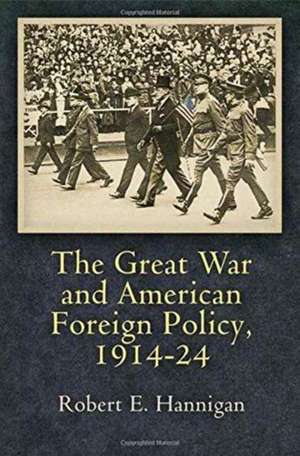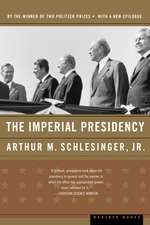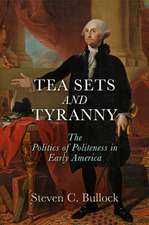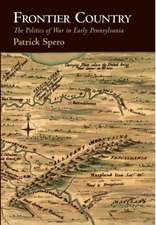The Great War and American Foreign Policy, 1914–24: Haney Foundation Series
Autor Robert E. Hanniganen Limba Engleză Hardback – 8 dec 2016
In The Great War and American Foreign Policy, 1914-1924, Robert E. Hannigan challenges the conventional belief that the United States entered World War I only because its hand was forced, and he disputes the claim that Washington was subsequently driven by a desire to make the world "safe for democracy." Democratic President Woodrow Wilson's rhetoric emphasized peace, self-determination, and international cooperation. But his foreign policy, Hannigan claims, is better understood if analyzed against the backdrop of American policy--not only toward Europe, but also toward East Asia and the rest of the western hemisphere--as it had been developing since the turn of the twentieth century. On the broadest level, Wilson sought to shore up and stabilize an international order promoted and presided over by London since the early 1800s, this in the conviction that under such conditions the United States would inevitably ascend to a global position comparable to, if not eclipsing, that of Great Britain. Hannigan argues, moreover, that these fundamental objectives continued to guide Wilson's Republican successors in their efforts to stabilize the postwar world.
The book reexamines the years when the United States was ostensibly neutral (1914-17), the subsequent period of American military involvement (1917-18), the Paris Peace Conference of 1919, the ensuing battle for ratification of the Treaty of Versailles (in 1919-20), and the activities of Wilson's successors--culminating with the Dawes Plan of 1924.
Din seria Haney Foundation Series
-
 Preț: 282.33 lei
Preț: 282.33 lei -
 Preț: 276.86 lei
Preț: 276.86 lei -
 Preț: 258.91 lei
Preț: 258.91 lei -
 Preț: 160.77 lei
Preț: 160.77 lei -
 Preț: 277.49 lei
Preț: 277.49 lei - 11%
 Preț: 531.90 lei
Preț: 531.90 lei -
 Preț: 231.22 lei
Preț: 231.22 lei -
 Preț: 196.55 lei
Preț: 196.55 lei -
 Preț: 195.13 lei
Preț: 195.13 lei -
 Preț: 133.74 lei
Preț: 133.74 lei -
 Preț: 391.05 lei
Preț: 391.05 lei -
 Preț: 196.36 lei
Preț: 196.36 lei -
 Preț: 191.18 lei
Preț: 191.18 lei -
 Preț: 196.36 lei
Preț: 196.36 lei - 8%
 Preț: 489.33 lei
Preț: 489.33 lei -
 Preț: 213.69 lei
Preț: 213.69 lei -
 Preț: 205.05 lei
Preț: 205.05 lei -
 Preț: 203.32 lei
Preț: 203.32 lei -
 Preț: 241.95 lei
Preț: 241.95 lei -
 Preț: 118.92 lei
Preț: 118.92 lei -
 Preț: 434.76 lei
Preț: 434.76 lei -
 Preț: 434.76 lei
Preț: 434.76 lei -
 Preț: 348.36 lei
Preț: 348.36 lei -
 Preț: 468.04 lei
Preț: 468.04 lei - 11%
 Preț: 501.50 lei
Preț: 501.50 lei -
 Preț: 338.73 lei
Preț: 338.73 lei - 11%
 Preț: 502.86 lei
Preț: 502.86 lei - 11%
 Preț: 444.47 lei
Preț: 444.47 lei -
 Preț: 307.38 lei
Preț: 307.38 lei - 11%
 Preț: 441.03 lei
Preț: 441.03 lei -
 Preț: 312.21 lei
Preț: 312.21 lei -
 Preț: 379.13 lei
Preț: 379.13 lei - 11%
 Preț: 443.59 lei
Preț: 443.59 lei -
 Preț: 434.76 lei
Preț: 434.76 lei -
 Preț: 466.13 lei
Preț: 466.13 lei -
 Preț: 472.83 lei
Preț: 472.83 lei -
 Preț: 203.22 lei
Preț: 203.22 lei -
 Preț: 370.48 lei
Preț: 370.48 lei - 11%
 Preț: 503.73 lei
Preț: 503.73 lei -
 Preț: 466.89 lei
Preț: 466.89 lei -
 Preț: 403.73 lei
Preț: 403.73 lei
Preț: 502.86 lei
Preț vechi: 565.01 lei
-11% Nou
96.22€ • 101.00$ • 79.87£
Carte tipărită la comandă
Livrare economică 10-24 aprilie
Specificații
ISBN-10: 0812248597
Pagini: 368
Dimensiuni: 161 x 236 x 31 mm
Greutate: 0.64 kg
Editura: MT – University of Pennsylvania Press
Seria Haney Foundation Series
Cuprins
Preface
PART I. BACKGROUND (1890s-1914)
Chapter 1. The United States Steps Out
PART II. AMERICAN "NEUTRALITY" (1914-17)
Chapter 2. Washington Reacts (1914-15)
Chapter 3. Pursuing a Seat at the Table (1916-17)
Chapter 4. China and Latin America (1914-17)
PART III. MILITARY INTERVENTION (1917-18)
Chapter 5. "The Whole Force of the Nation"
Chapter 6. To the Fourteen Points Address
Chapter 7. Casting Every Selfish Dominion Down in the Dust (1918)
PART IV. THE PARIS SETTLEMENT (1919-20)
Chapter 8. The Future of Europe—and the World
Chapter 9. The Treaty of Versailles
Chapter 10. Americans in Paris: The Russian Revolution, the Royal Navy, Power in the Western Hemisphere
Chapter 11. Americans in Paris: The Colonial World
Chapter 12. Americans in Paris: The Adriatic and Shandong Controversies
Chapter 13. The Campaigns for Treaty Ratification (Summer 1919-20)
PART V. THE REPUBLICANS TRY THEIR HANDS (1921-24)
Chapter 14. Latin America and China
Chapter 15. Europe
Conclusion
Notes
Index
Acknowledgments


















